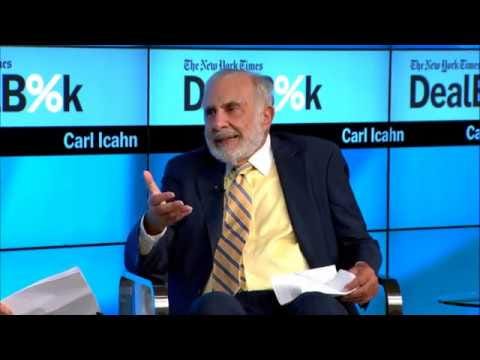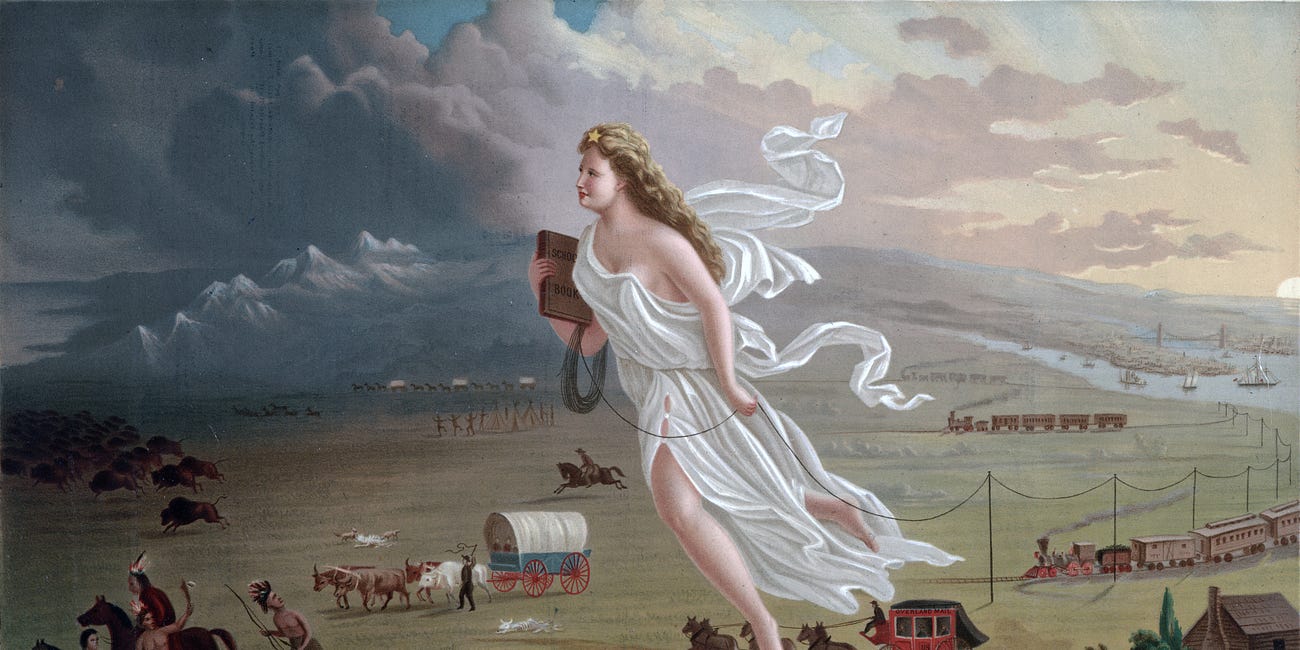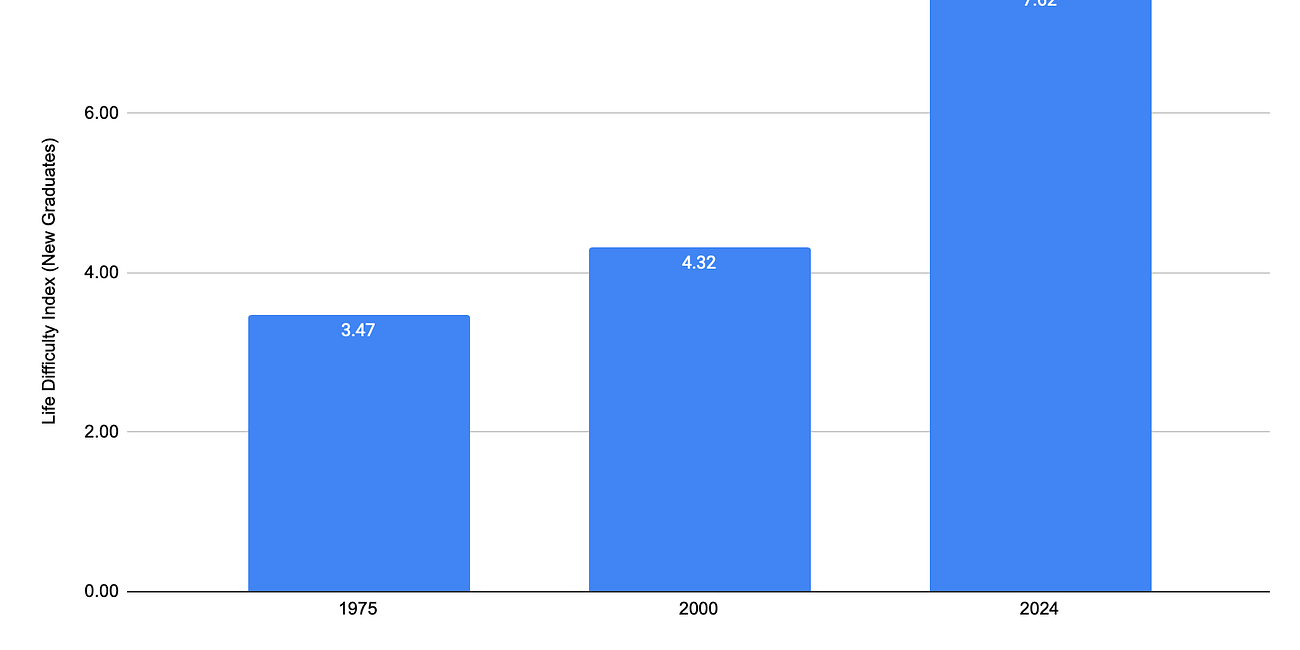Due to the length of this post, readers in Gmail may want to click the link above to read in their browser.
Thanks to Aaron Renn and others re-stacking my recent post on the cost of middle-class life, I’d like to welcome new readers. Conveniently, this week features my last post of the year, where I look back at my output for 2024.
The Tom File is a labor of love; writing helps me think, and sharing that with an audience makes it fun. I aim to add value for my readers as we seek to understand the world together. As I wrote earlier this year:
One of the reasons I write is to hopefully provide a perspective from someone who doesn’t write or raise money for a living, has some real life experience, and being liberated decades ago from my corporate job, to speak for the reasonable majority of productive people who don’t have time to argue on the Internet.
In particular, my bias for quantifiable, falsifiable ideas and experience in the brutally Darwinian business world give me a decent ability to cut through the clutter of the more verbally inclined types who tend to produce most influential writing. Given my real-world responsibilities, I aim for something about every two weeks.
This year, I sent out 19 columns. I began January with my now-annual foolish habit of attempting to predict economic news, along with some commentary about how the perma-bubble may persist due to its utility for gambling and the overwhelming economics of work-from-home:
2024 Economic Outlook & Commentary
First, a check-in on that most foolish habit of mine, making predictions. Last year, I predicted:
My second January commentary was my review of the Elon Musk biography by Walter Isaacson, expressing my now-reformed opinion of him as one of history’s great men:
Elon Musk by Walter Isaacson
I received this book as a Christmas gift and it being substantially less dense than my typical materials, I finished its 400+ pages early this month. I read print books at night, away from screens, to calm down before bed. This book had the opposite effect. Just reading about Elon’s razor-edged life was enough to cause mild insomnia.
In February I dipped my toe into a new genre of column I called “half-baked parenting advice” when I discussed the value of inculcating socially-appropriate expressions of disgust in one’s children:
Disgust and Discretion
I’ve been loathe to give parenting advice in these columns. Newlyweds shouldn’t give marital advice, and people whose children aren’t yet fully independent adults should be cautious about parenting advice. The problem with this is by the time parenting advice has credibility in terms of its outcomes — of course while acknowledging the role of factors ou…
This was followed by Part Three of my idiosyncratic faith journey where I answered common objections to Christianity:
Why I Believe, Part Three: Objections to Christianity
To finish up my series on faith, in this article, I will attempt to address objections to Christianity that I’ve struggled at times to explain away. Again, I’ll remind the reader that I am not a professional apologist and the reasoning below is not informed by a formal theological education.
March must have been busy, as my sole commentary was a review of David Graeber’s “BS Jobs,” in which I try to provide an economic explanation for corporate bloat and inefficiency:
Bull**** Jobs by David Graeber
I had heard of this book and idea a few years ago, so when it popped back up into my memory a few weeks ago, I ordered the paperback. My children have questioned why Dad is reading a book with a bad word on it (my answer: I’m a bad person). I was half-expecting a low-IQ business book of the ranting variety, but instead I was pleasantly surprised to disc…
In April, I began with an unusual defense of IVF against reactionary Christian “abolitionists” with more moral fervor than scientific literacy, along with my technical skepticism of the effectiveness of the burgeoning embryo selection industry’s bypassing of natural reproduction’s built-in “eugenic” processes:
The Ethics of IVF
There remains a segment of the pro-life movement that has a purity-spiraling element to it, much too concerned with do-gooding in other people’s business at a very low return on political capital, particularly in blue areas of the country now that the issue has been de-federalized. I suppose, as Trump implied recently, there might be a fundraising motiv…
My next piece was a practical column on my personal productivity stack, including my now almost multi-decade practices from David Allen’s Getting Things Done:
TTF Tech / Productivity Stack
Ever since reading David Allen’s Getting Things Done about eighteen years ago, early in my entrepreneurial career, I have experimented with various methods for optimizing productivity. As a late Gen Xer, I’ve been online for almost 30 years, ever since taking a computer literacy course at my local university for high school credit in 1995 entitled me to…
In May, I reflected on a biography of Napoleon, explained my abandonment of the romanticism of monarchy, my long-delayed acceptance of democracy as an unfortunate Nash equilibrium of governance, and attempted to describe the ideal republic:
Napoleon, Imposter Syndrome, and Democracy
The release of the Napoleon movie last year brought a number of Twitter threads to my attention with recommended biographies. Given I had never read about one of history’s greatest leaders, I added a modern biography by Adam Zomoyski to my reading stack. I have always liked the aesthetic of
I followed with my most popular post of the year, a commentary on the famous reality TV Duggar clan, and how gullibility, lack of theological depth, and flaws in evangelical ideas of human sexuality — in being both too lenient and strict in different contexts — can when consistently applied, lead to catastrophic outcomes:
The Duggars, Lust, & Legalism
Some on my list will be familiar with the Duggar family, the former reality TV stars known for their extremely large family of 19 children, whose fame took a tragic turn when their oldest, Josh, was revealed to be a sex offender. More recently, some of the younger Duggars, now adults, have started talking publicly about their experience. Jinger Duggar, …
June saw no posts, but early July featured my travel log of Italy:
Impressions of Italia
Note: Due to photos, if you’re reading this in Gmail, you may want to click above to “view in browser” to see the entire post.
I followed this with a post about my acceptance of affluent suburbs as, like democracy, both regrettable yet inevitable, as I continued a theme of losing some of my youthful romanticism, though I do provide a modest defense of the benefits of smaller cities:
Secession of the Successful
For most of my adult life, I’ve lived in a midsize metro with a geographically dispersed population in the low-to-mid six figures. Since I grew up in an unincorporated village of 400 people, to me it feels like the big city.
In August I posted a column drawing parallels between tech monopolies and the Israel lobby, advising both to stop abusing their greatest fans and natural allies in the Republican grassroots:
On Google's Monopoly and Palestine
I believe Peter Thiel is correct that the end goal of every business is to achieve a monopoly. Given that monopolies are technically illegal, Thiel observes that bad businesses pretend to be monopolies to fool investors and good businesses poor-mouth about competition to avoid being prosecuted for their effective monopolistic practices.
I followed this with the first publication of some excerpts from an internal manual I produced for my business associates on the nature of work and capitalism:
A Practical Theology of Work
The following is an edited excerpt from an unpublished book on business that I have shared with a few close associates.
In September, I continued pondering Bubble economics by considering whether there is, in fact, a relative glut of capital compared to the past, which would tend to make historical valuations less predictive of future ones:
Is There a Glut of Capital?
The primary thesis of my investing strategy over the last few years has been that of the “anti-bubble” liquidity flywheel. While we differ in specifics with the author, who unfortunately was over-exposed to “value” Russian stocks — we hold that societies outside of the Western European cultural lineage, except maybe Japan, Singapore, and Korea, and thus…
This was followed by another post from my internal business manual on the mechanics of Christian capitalism (which, as I explain, is a somewhat redundant phrase):
Prices, Discount Rates, and Profits
This post is a continuation of an excerpt from an unpublished manual on my philosophy of business. Part One here.
October featured the final effort in my series on why I’m a Christian, including the hardest for me personally, on the doctrine of eternal hell:
Why I Believe, Part Four: Objections to Hell
In this final post on my reasons for belief, I’ll deal with the objection that has caused the most personal struggle: the doctrine of hell, which has taken me more time to write. It begins by assuming the Christian faith is true, building on the case for theism (
While this space usually avoids covering political news, I succumbed to temptation in November and posted a retrospective on the Trump movement, including some fantastical ideas (though maybe not given recent developments!) for American territorial expansion:
Trump's Legacy and Opportunity
In this space, I generally avoid discussions of retail politics and focus on bigger-picture topics. But as this month marks over nine years of the post-Trump era, a change so discontinuous with the past that it is a historical earthquake in American political history. Win or lose, we are in the last days of his last campaign.
I followed this with a post-election column that attempted, among other things, to estimate the “bezzle” of Democratic votes that nationwide voter reform might eliminate, along with an instinctual analysis of why Americans have largely rejected the pro-life movement:
Trump's Accelerationist Moment
Trump won decisively. It wasn’t quite a landslide by Nixon or Reagan standards, but it’s probably as good as it gets in today’s electoral environment.
December featured my second-most-popular post this year, where I sharpen my pencil to quantify the increasing costs of middle-class life for young people. To my surprise, I discovered that depressive Gen Xers like myself had it almost as good as the Boomers. Hopefully, I helped reframe the difficulties Gen Z faces, a quantitative financial difference that represents a qualitative break with post-WWII middle-class American prosperity:
Is the Middle Class Still Attainable?
One critique of our cultural moment is the unattainability for young people of the American dream, or what we might more accurately call the middle class — which for shorthand I’ll define as the cost, relative to income, of owning a home and modest, reliable transportation. Is the malaise of much of Gen Z due to moral defects, as some members of older g…
So what’s in the drafts folder for next year? These are in the hopper, but no guarantee they get finished on any particular timeline:
A lifestyle optimization update on the value of high protein intake for maintaining a healthy weight, and its seeming exception, backed by metabolic ward studies, among macronutrients for strict calories-in-calories-out accounting.
A critique of one popular, too-clever, semi-rotund Reformed pastor’s attempt to redefine gluttony as something other than overeating (and hilarious kudos to whichever one of “our guys” did this in response).
A long think-piece I’ve been working on intermittently for almost two years relating certain drug subcultures to paraphilias. I’m not sure how far to extrapolate my conclusions, which is why it’s been on hold for so long.
A grab-bag of “half-baked parenting advice,” including things I’d do differently, as we work towards empty nesthood in this brave new technological world.
Related to the previous, and a companion piece to my recent discussion of the increasing unattainability of the middle class, a description of the particular cultural difficulties young people face in getting to “the other side” of the great woke/technology filter that is causing devastating population collapse in productive cultures worldwide.
A review of Richard Hanania’s The Origins of Woke.
Related to Hanania’s idea of “elite human capital,” an extended analysis of this note on the repression of objective elite talent in the heartland.
If I’m foolish enough, I’ll offer my latest thoughts on vaccines. Seriously, of all the topics I’ve ever discussed online, this one seems to bring out the most passionate responses.
A selection of advice for nerdy young men.
A comparison of the political cultures of Texas and Louisiana.
A funny personal story about my experience with juvenile court as a teenager.
Thanks for reading, and may all of you enjoy a very Merry Christmas season and a prosperous 2025!





















Always interesting, well-written, and well-reasoned. I, for one, always look forward to your pieces.